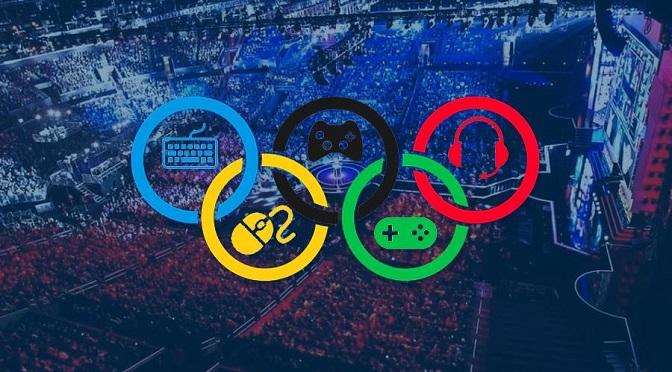
Why the International Olympic Committee won’t accept esports
Despite the esports scene continuing to grow each year, it appears that the world of mainstream sports is still not yet ready to invite gaming to their exclusive Olympic club.
While the Intel World Open will have Street Fighter V and Rocket League leading up to the 2020 Olympics, the International Olympics Committee has stated that more studies are needed before esports can be considered an official part of the Olympics themselves.
“As we explore the engagement between esports and the Olympic Movement, we are looking forward to learning from this event and continuing to engage with the passionate esports community from around the world,” IOC’s sports director Kit McConnell said about the Intel World Open.
International Olympics Committee meets with esports community
Before the Intel World Open was announced, the IOC had met with the Global Association of International Sports Federations to have an esports forum. The event had over 150 representatives from across the esports industry, including publishers, players, teams, media, and sponsors. Athletes, partners, and International Sports Federations represented the Olympics.
An Overwatch pro player for the Houston Outlaw, Jacob “Jake” Lyon, was one of the esports professionals present at the event.
“It was great to be able to participate in today’s forum with the Olympic Movement. I think both communities were interested to learn from each other and I think it demonstrates the growing importance and following of esports around the world. There is much opportunity for each movement to learn and grow from the other’s experiences,” Jake said.
But while McConnell said that there was a promise of “ongoing dialogue” through the formation of the Esports Liaison Group, it seemed that 2020 was just too early to commit to the idea of esports being considered a sport category worthy of the olympic stage.
Why are esports not in the 2020 Olympics?
By the end of 2018, the IOC concluded that esports “entailed physical activity” comparable to what’s required in traditional sports, but the IOC’s president Thomas Bach was on the record as saying “some egames are not compatible with the Olympic values.”
He went on to tell the Associated Press that the Olympic program could not have esports as long as games “promoted violence or discrimination.” He went on to call them “so-called killer games,” noting that they went against their view of what the Olympics should be about.
Bach, who won a gold medal in fencing in the past, admitted that combat sports have “origins in real fights” but that sports have become a “civilized expression” of these ancient traditions. Meanwhile, “egames” currently include “killing people.”
It’s safe to assume that Bach is not excluding pro gamers because they aren’t considered athletes. Instead, it’s the contents of the games they play that have Bach hesitant to allow them into the ceremony itself. Of course, the use of “egames” and “killer games” draws into question whether Bach is really up to date with the esports scene. It seems he may be out of touch with the gaming community, and with games in general.
But in-game violence may not be the only thing holding esports back from the 2024 Summer Olympics in Paris, which have already expressed interest in including video games. Three-time world champion BMX competitor and current IOC Athletes’ Commission member Sarah Walker is not as quick to accept esports’ physical activity as being similar to a traditional sports.
“If I want to practice any Olympic discipline, if I wanted to try one of them, I actually have to go out and do it. I have to be active. Where gaming is right now, if I was inspired to be a gamer, my first step is to go home and sit on the couch,” Walker told Inside the Games.
While pro gamers spend up to 12 hours per day training and practicing, as well as utilizing nutritionists and sports psychologists to improve themselves, many traditional athletes are not quick to accept that as enough of a physical demand to be considered on the level of traditional sports.
Another former Olympian pointed towards esports’ sexism and lack of female representation as a reason to bar it from the Olympic Games. In an op-ed for The Conversation, they said that “women are usually depicated as highly [sexualized] and as victims instead of heroines.” It’s unclear which esports title she is referencing, since none of them feature exclusively female victims and many prominently feature female heroines.
While it’s possible this is just another older person scared of change who doesn’t actually know too much about the esports industry, it is very true that esports lack female athletes and female representation in general. Still, there are all-female esports teams that could compete in the Olympics, representing a variety of titles.
For now, it seems as though the IOC is not ready to accept esports as an Olympic sport. But things could change by 2024, especially if more forums continue to take place leading up to the event.
Recommended

MrBeast takes action on Ava controversy, responds to allegations
MrBeast has launched a private probe.

Here’s how to play Marvel Rivals closed beta playtest
How to jump into the Marvel Universe.








